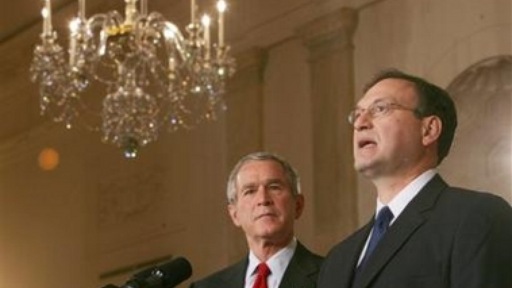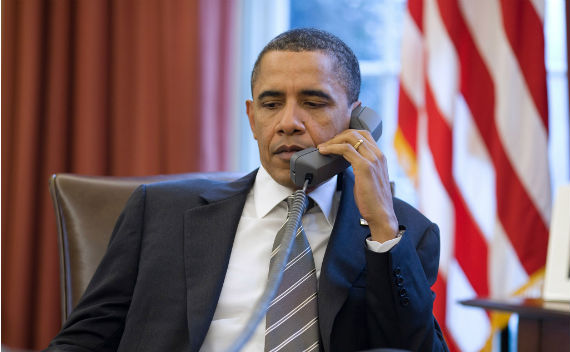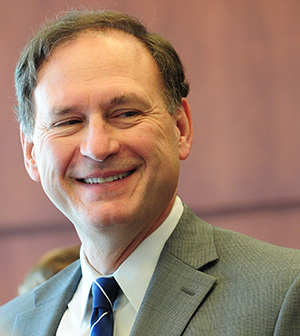
(Update: This post was revised on April 30, 2013. See the post history at the bottom for more details.)
Back in January, I wrote in this space about Boyer v. Louisiana, in which an indigent death penalty defendant argued that the state had violated his constitutional right to a speedy trial when it failed to provide funds for his court-appointed counsel, resulting in a seven-year wait for trial from prison. The Supreme Court had just heard oral argument on the agreed-upon question of whether Louisiana’s lack of necessary funds for defendants could be weighed against the state under the Court’s speedy trial analysis. My answer to this key issue then was (and still is) yes–regardless of Jonathan Boyer’s eventual conviction for the murder for which he was charged, the state needs to bear some responsibility for its failure to repair the infamous and well-documented funding crisis in its public defense system, which has led directly to long delays for the trials of indigent defendants.
Today, however, the Supreme Court dismissed Boyer’s case without even reaching this important constitutional question, seemingly unable to look past the heinous shooting death of which Boyer stood accused. In a one-sentence, 5-4 decision, an ideologically-divided Court stated that it had been “improvidently granted” (or, “DIG,” in Court-watcher parlance), meaning that it should have never agreed to hear the case at all. The reason? As Justice Samuel Alito explains in his concurrence, ((Justice Alito’s concurrence was joined by Justice Clarence Thomas, who, as you may remember, stole the show at the January argument by breaking a nearly seven-year silence and cracking a joke about the quality of Boyer’s defense counsel.)) some of the justices do not accept the premise that it was actually Louisiana that caused the “lengthy delay between [Boyer’s] arrest and trial,” despite the state’s longstanding problems with indigent defense. Rather, they believe that the defendant himself convoluted and muddled the path to trial. Since they don’t think that Louisiana was at fault, the question that the Court had originally agreed to hear–which had assumed the state was the party responsible for the delay–was not the correct one the case should be decided on.
To reach DIG, Justice Alito had to step over the Louisiana Court of Appeals’ factual finding that “[t]he majority of the seven-year delay was caused by the ‘lack of funding’” and the state’s own admission that it could not free up adequate money to pay Boyer’s two court-appointed counsel to mount a capital murder defense. Attributing Louisiana’s admitted lack of funds to mere “confusion about which branch of the state government was responsible for paying [the defense attorney’s] fees,” Alito looks to the record and describes the state getting railroaded by the defendant’s counsel when in fact it was trying to bring Boyer to justice promptly. In Alito’s recounting, Boyer’s attorneys took advantage of the “confusion” by repeatedly delaying a funding hearing, as well as asking for multiple continuances of trial even after the state dropped its pursuit of the death penalty (thus making the case less expensive to defend). Explaining away the plain language of the Louisiana Court of Appeals’ conclusion about the cause of delay, Alito insists that the words “lack of funding” “most likely means” the hoopla surrounding the funding of the indigent Boyer’s trial (which to Alito was largely caused by Boyer himself), rather than, well, the state’s lack of funding.
Of course, in the eyes of the Supreme Court’s conservative majority, what really did Boyer in is the fact that he was eventually convicted of murder, a fact that makes him a less sympathetic plaintiff than if he had been exonerated at trial after languishing for seven years in prison. Just to remind us all of what kind of person the state was dealing with, Alito writes:
The evidence of petitioner’s guilt was overwhelming. He gave the police a detailed statement describing the murder; his brother, an eyewitness, agreed to testify about the crime; multiple other members of petitioner’s family told police that they had heard petitioner confess; and petitioner’s fingerprints were found in the victim’s truck.
Accordingly, a sense of “well, he deserved it anyway” permeates the concurrence–Jonathan Boyer was found guilty of shooting a man to death, so it’s no big loss to society to dismiss his case and avoid the larger question of whether Louisiana also did something wrong here. In fact, Justice Alito thinks that Boyer has already gamed the system through his delaying tactics and gotten a better deal out of the state as a result: “It is also quite clear that the delay caused by the defense likely worked in petitioner’s favor…[W]hat started out as a very strong case of first-degree murder ended up, after much delay, in a conviction for lesser offenses.”
Having successfully schemed his way to get out of the death penalty, Jonathan Boyer doesn’t deserve anything more from this court. What Alito pointedly ignores, however, is the fact that even if this is true in Boyer’s case, Boyer is not the only indigent inmate in Louisiana’s prisons who has seen a trial delay thanks to dithering (or “confusion”) on the part of the state.
Justice Sonia Sotomayor’s dissent against the improvident grant ruling points out as much. Writing for herself and Justices Breyer, Kagan and Ginsburg, Sotomayor doesn’t disagree with the jury finding that Boyer was guilty of second-degree murder, but she does think that the Court needs to take this opportunity to clarify the state’s speedy trial obligations, precisely because Boyer’s situation is not a unique or isolated one. Specifically, Sotomayor states that the lower court should have weighed the failure to fund against the state in Boyer’s speedy trial challenge:
Placing the consequences of such a delay squarely on the State’s shoulders is proper for the simple reason that an indigent defendant has no control over whether a State has set aside funds to pay his lawyer or fund any necessary investigation. The failure to fund an indigent’s defense is not as serious as a deliberate effort by a State to cause delay… But States routinely make tradeoffs in the allocation of limited resources, and it is reasonable that a State bear the consequences of these choices.
Justice Sotomayor warns that the Court may have avoided that constitutional issue today, but sooner or later, it will have to come up with an answer about the state’s accountability. In the meantime, indigent inmates in Louisiana continue to await trials from behind bars due to the state’s funding crisis, being treated as if they were guilty before proven innocent (or guilty)–a fact that Sotomayor backs up with empirical studies showing significant understaffing of Louisiana’s public defender services and average waits of 501 days between felony arrests and trials in some parishes. Jonathan Boyer’s case may have been particularly outrageous in just how long he had to wait for his, but, as Sotomayor writes, his case is indicative of “larger, systemic problems in Louisiana.” What Justice Alito and the majority forget is that the Sixth Amendment speedy trial guarantee applies to both the innocent and the guilty–and the longer the Court sits on its hands, the more likely it is that an innocent version of Jonathan Boyer will be needlessly imprisoned for years while awaiting acquittal.
As it turns out, Boyer v. Louisiana is a prime example of the right question coming before the Supreme Court but with the wrong facts and the wrong plaintiff. The Court surely would have been more hesitant to dismiss the case wholesale had the defendant been more sympathetic, the crime less horrible, the facts more ambiguous. The Boyer DIG also highlights the unique difficulty of Sixth Amendment speedy trial cases: because the Supreme Court said in 1973’s Strunk v. United States that the proper remedy for a speedy trial violation is an outright reversal of any conviction (or dismissal of indictment), courts are very hesitant to permit such a drastic measure unless they are convinced of the defendant’s innocence. This was undoubtedly a result that Justice Alito and the conservative majority did not want to see with Boyer, who they (and a non-unanimous jury) have decided deserves to spend life in prison without parole. Due to the zero-sum nature of speedy trial disputes, however, the Court’s dismissal today lets the state of Louisiana off scot-free for its failure to fix its admittedly broken indigent defense system.


